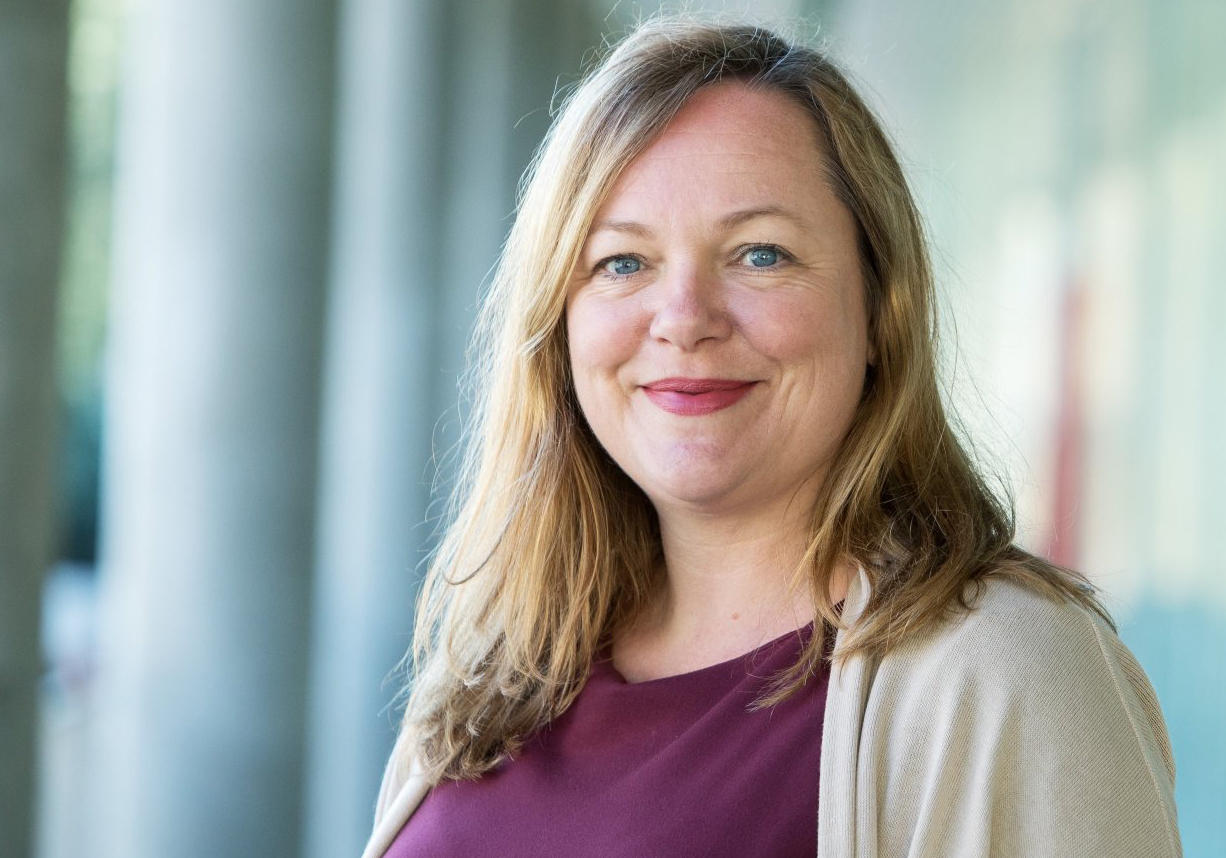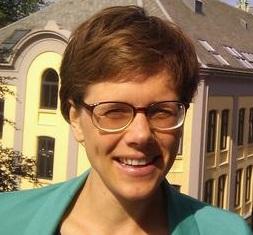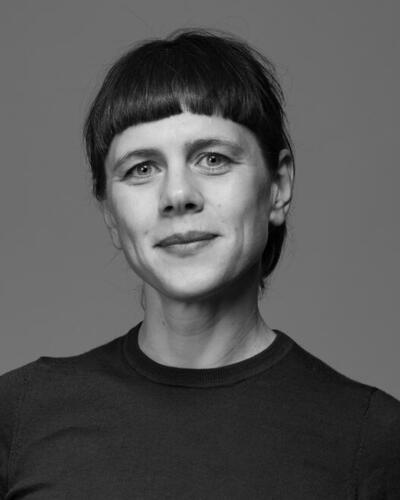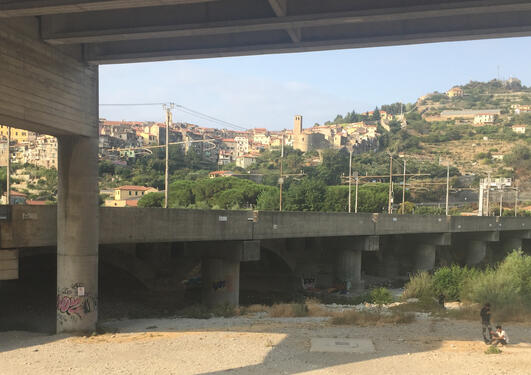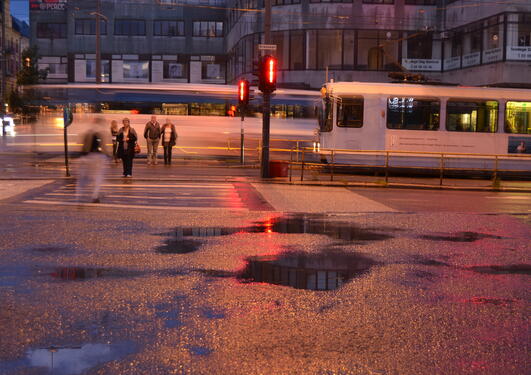Migration researchers in the field
"Meeting the migrants have made a big impression on me, but as an anthropologist it is also through these meetings that I do my best thinking."

Main content
These are the words of Christine M. Jacobsen, researcher and project leader for the WAIT project.
Through ethnographic research, the project examines how laws, norms and power relations structure irregular migrants' experience of time and their possibility to carry out their life projects.
"In our project group we understand waiting as encompassing the life of migrants. We are not as much interested in the fact that people wait, but rather on how they wait. In particular, we look at the conditions, such as the material conditions, of the waitinghood of migrants," Jacobsen says.
She describes an everyday situation characterized by acute housing shortage, limited access to welfare, and precarious attachment to the labor market. Material conditions like these are important to consider from a public health perspective, but they are also central to the migrants' possibilities to realize their life projects, and be a part of society.
Waiting and power
Jacobsen is clear about waiting also being about power and about control over your own time and the time of others:
"Waiting is often associated with immobility and passivity, but waiting can imply different temporalities, or ways to experience and structure time. Short submission deadlines for handing in documents to the authorities can turn up the tempo, while slow turnaround can turn it down. Rather than immobility and passivity, waiting in this case is about having your time tied up by the authorities," Jacobsen explains. She says that authorities can seize the time of irregular migrants requiring documents, arranging meetings, and through the long waiting lines in the bureaucratic system.
"I call this a colonization of the migrants time and their life projects. As such, waiting should be understood as expressing a power relation where the distinction is between those who can make other people wait for them or hurry up."
But Jacobsen also stresses the importance of examinig how the effects of waiting depend on what you are waiting for:
"The object of waiting is important for how waiting is experienced. This is evident among institutionalized migrants waiting to be deported. Their situation is often characterized by hopelessness and feelings of powerlessness among themigrants, and is central for their experience of the relation between past and future.
Norwegian temporariness
Throughout the last year the researchers at the WAIT-project have carried out ethnographic fieldwork in several European cities, developing their own sub-projects within the frames of WAIT. Marry-Anne Karlsen has focused on the situation of irregular migrants in Oslo:
"Among other things, I have looked at the relation between time and belonging, for instance how migrants experience a sense of belonging through time, or how the state attempts to curtail migrants' attachment to the country."
Karlsen says that Norway, as many other European states, has implemented a series of political measures with the goal of making it difficult to live as an irregular migrant in the country.
"The protracted possibility of being deported institutionalizes a sense of temporariness and unpredictability in irregular migrants’ lives. Available services to irregular migrants in Norway are also increasingly structured in such a way as to maintain a sense of temporariness to indicate that their time in the country has ended," she adds.
"Informants in my study expressed a sense of waiting to belong, living a life in legal and existential limbo. Yet, at the same time, they also claimed belonging in and through waiting. Migrants can experience ‘waiting’ as a form of trial or punishment before they can be recognized as members of society."
Karlsen says that in some countries, such as the US, France and Italy, years of continuous presence can help qualify the irregular migrant for legalization through occasional amnesty and regularization programs. Norway have been one of the strictest countries in Europe when it comes to regularization and/or amnesty. The fear is that this will attract more migrants, as well as encourage those who have come to remain. The Norwegian authorities have thus insisted on sending out, according to themselves, consistent signals that ‘illegal stay’ will not be rewarded.
"Yet, most of the migrants in my study have stayed between 7 and 12 years in Norway, and some up to 20 years," she says. She is clear on what has made the biggest impression on her during her fieldwork:
"The very difficult conditions that many of my informants live in."
German tolerance
The situation of irregular migrants in Germany is similar to that in Norway in many ways. Many of the migrants in Germany have also waited for several years to gain a permanent residency or to be deported. Kari Anne Drangsland has carried out fieldwork in Hamburg, and in her project she focuses on how waiting and time is implicated in the production of borders.
"Among other things, I am concerned with the relationship between time and different mechanisms of inclusion and exclusion. For instance establishing borders between the people that are part of the labor marked and those who are not. In particular I am concerned with examining how the migration laws produce their own tempo and controls the rythms of people’s lives," Drangsland says.
Drangsland has done large parts of her fieldwork at two refugee camps. These are intended for short stays of maximum 6 months, and the migrants live in cramped spaces housing up to four persons at the time. However, many of the migrants she has talked to live there for extended periods of time, some of them up to two years. At the camp they receive all their meals at fixed times, and they are not allowed to leave the camp for more than three days at the time. Furthermore, their experience of time is structured by bureaucratic deadlines, and by the allocation of rights (to work, to language training) depending on their country of origin and their legal status.
"But the migrants experience of time is complex, and shaped by their own life histories, by the social relations they are part of, their health conditions, and by their expectations and desires for the future. The migrants I’ve met employ different strategies to create the future that they want for themselves," she says.
However, Germany differs from Norway in significant aspects. In Drangsland’s research, she has focused on how German migration laws allows limited forms of regularization through the duldung-framework. Duldung means “tolerated”, and is a temporary postponement of deportation.
"Duldung organizes and structures time in specific ways. Some of the people I have met have lived with a duldung for several years, for instance because they are to sick to be deported. The postponement has to be renewed by the authorities every two weeks, and often implies several hours of waiting in line to get the renewal. Additionally, the migrants are living with the constant threat of being deported," Drangsland says. She has informants who have been “tolerated” in Germany for 14 years.
"Duldung creates a situation of vulnerability, where it is very difficult to plan the future, but the legal framework also opens up for negotiations of the future with the authorities, and an important part of my work has been to look at these negotiations."
Critical gender studies of migration
Christine M. Jacobsen is very pleased with the work in the project group so far. As Head of the Centre for Women’s and Gender Research, she is also concerned with the contribution of gender studies to the WAIT project:
"Even if gender is not always the explicit focus of the analytical approaches we employ, the analysis is informed by a feminist tradition. Feminist perspectives have also been central in the discussions we have had concerning the ethical implications of our research, in particular we have drawn on feminist anthropology and geography, which have defined the field."
When highlighting the importance of gender theory in the WAIT project, Jacobsen signals its critical orientation and potential:
"In research politics there is an increasing focus on impact and societal relevance, but in WAIT we are committed to producing knowledge that is not only policy-relevant, but also relevant to the migrants that we work with. This is intimately related with acknowledging the need for basic, critical research on migration."
Jacobsen hopes that the WAIT project can contribute with new knowledge on how waiting and uncertainty regarding their own future are important elements of the experience of irregular migrants.
